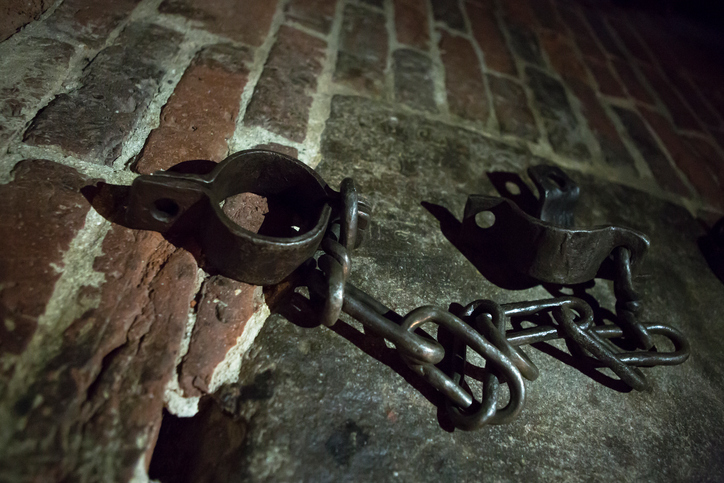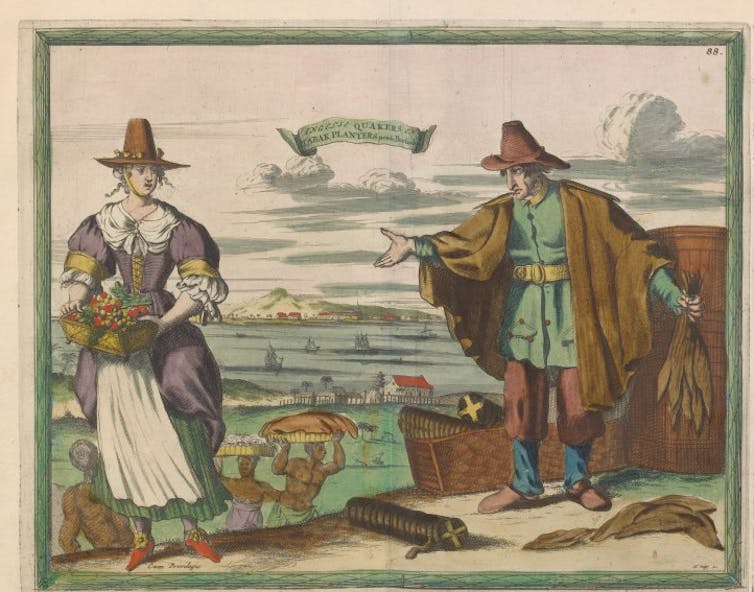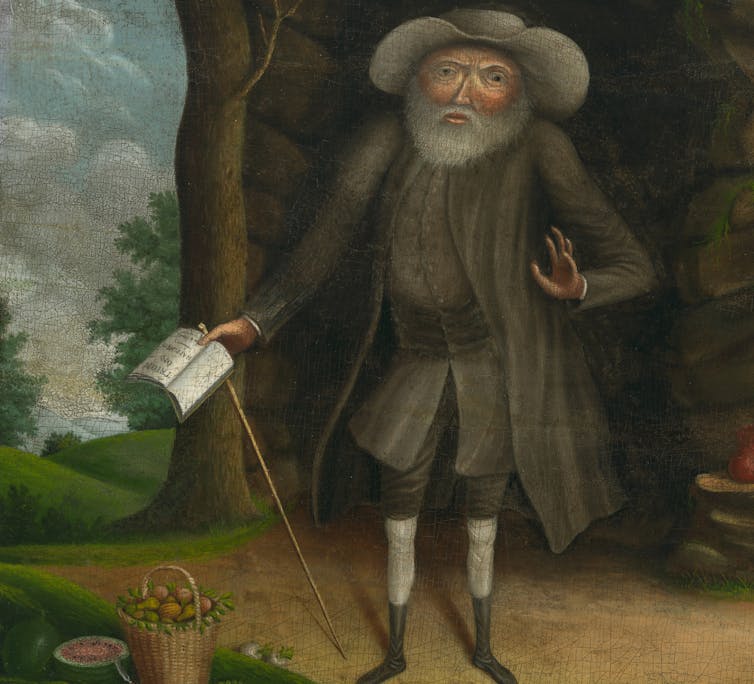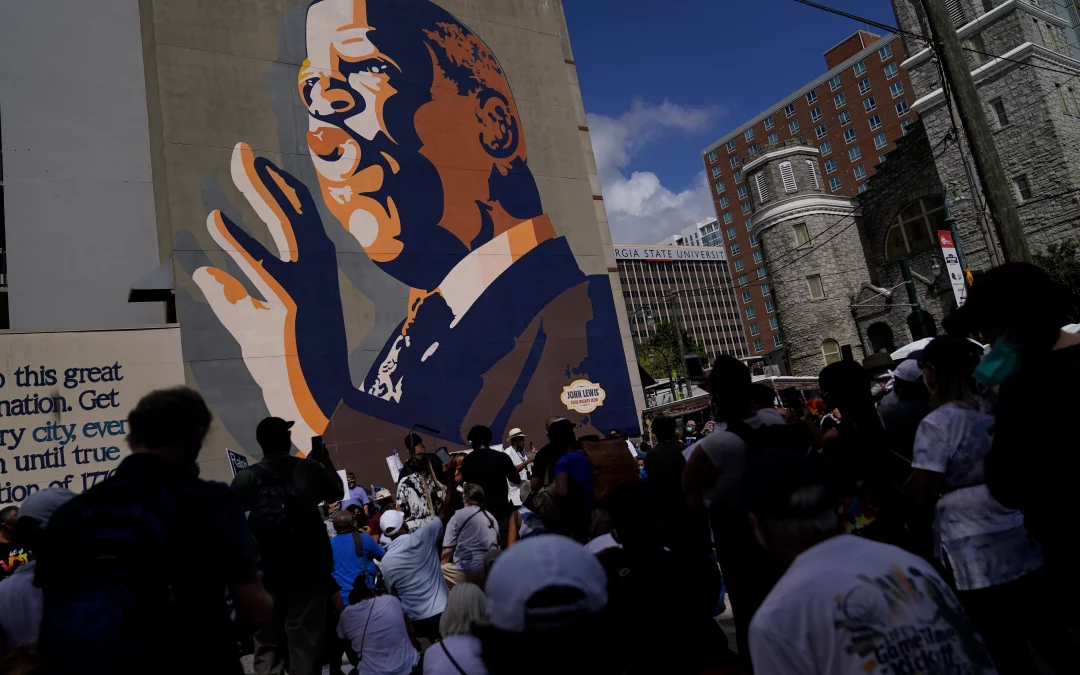
Whose vote counts? Whose doesn’t?
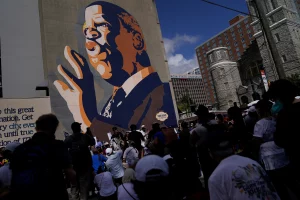
(RNS) — Millions of Texas voters headed to the polls earlier this month in the state’s primary elections — but the democratic system they participated in is markedly different from the recent past.
After last year’s enactment of sweeping voting restrictions by the Texas Statehouse, the primaries served as a first chance to see how damaging these laws would truly be. It’s too soon to get the full picture, but early signs are ominous: Roughly 30% of absentee ballots cast were rejected by election officials, a massive increase from the 2020 general election when fewer than 1% of ballots met the same fate.
Regrettably, this is likely a mere preview of what’s to come for millions of voters across the nation. In 2021, at least 19 states passed 34 laws restricting access to voting. This includes limiting mail balloting, purging voter rolls and reducing poll hours on Election Day. More than 440 bills with provisions that restrict voting access were introduced in 49 states in the 2021 legislative sessions and more are certain to come.
This isn’t just about who will or will not be able to vote in elections. When combined with the toxic partisanship that is dividing our country — and the fact that large portions of our population and numerous elected leaders still cast doubt on the outcome of the 2020 presidential election — an undeniable truth emerges: Our democracy is in deep peril.
As the first registered religious lobbying organization in the United States, we at the Friends Committee on National Legislation believe civic engagement of all people is vital to the democratic life of our country. This begins with the fundamental right to vote. Quakers and other people of faith understand that voting is not just a basic civic right but a moral requirement. At the center of our faith is the unwavering belief in and commitment to the equality and dignity of every human being. Safeguarding the integrity of the voting process for all people and removing, not raising, barriers to the full participation of disenfranchised people in our electoral process is vital to our democracy and our integrity as a nation.
What happened in Texas and in other states violates our democratic principles and our moral conscience. We know voters of color are most directly impacted by efforts to suppress their voice, both historically and today. These communities are also leading the voting rights movement, often at great personal risk. This is only the latest chapter in a long struggle against disenfranchisement of Black and brown communities in the United States. Our faith calls us to help uproot racism and discrimination wherever it exists, including at the ballot box, and to help transform our nation into the beloved community we envision.
This call to protect elections as the bedrock of democracy is not new. Earlier this year, in anticipation of Martin Luther King Day, advocates launched a large scale effort to pass the Freedom to Vote: John R. Lewis Act. This bill would revitalize American democracy by making elections more accessible, secure and transparent, and by ensuring that states do not pass discriminatory laws that restrict access to the ballot box. The effort failed due to a filibuster but has not been abandoned.
Even as Congress rightly focuses on the crisis in Ukraine and the president’s economic agenda, voting rights must remain a top priority for the nation. Currently, efforts to reform the Electoral Count Act of 1887 have real momentum in Congress, with a bipartisan group of senators working to find common ground.
This alone will not end all voter suppression, but it could be a successful vehicle for additional necessary reforms, including amendments to prevent state legislatures from overturning election results, making Election Day a holiday, supporting small-donor financing, instituting gerrymandering reforms or making absentee/vote-by-mail easier.
And despite the failed vote, senators should keep pushing for the Freedom to Vote: John R. Lewis Act. History has taught us the advancement of voting rights has never come quickly or easily — and raising the moral conscience of our nation on these issues is an important role of the faith community.
Quakers believe our democracy can live up to its potential only if the government safeguards the integrity of the voting process and ensures full participation for all people. The push for voting rights is a moral imperative and requires the urgent passage of nationwide voting rights legislation. Advocates and people of faith won’t rest until real action is taken. The Senate shouldn’t either.
(Bridget Moix is the fifth general secretary of the Friends Committee on National Legislation in its 80-year history. She brings with her more than 25 years of work in peacebuilding. Moix also leads two other Quaker organizations: Friends Place on Capitol Hill and the FCNL Education Fund. The views expressed in this commentary do not necessarily reflect those of Religion News Service.)

